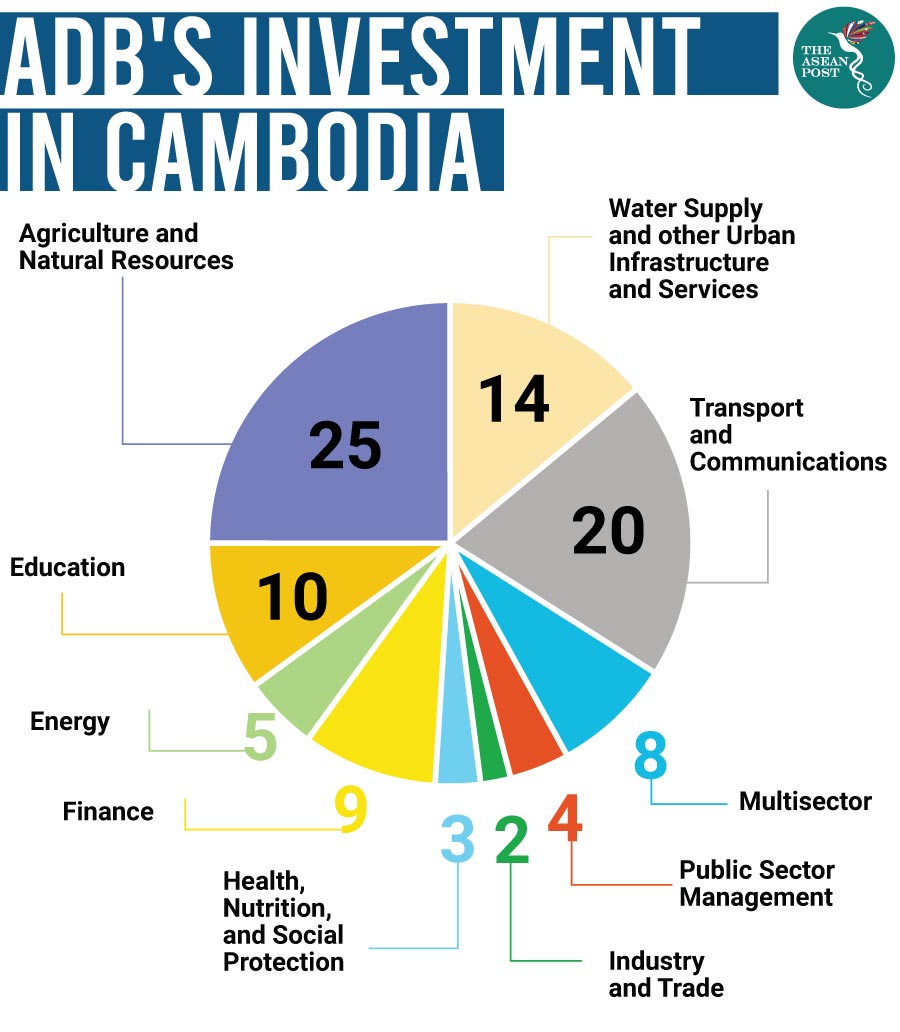The Asian Development Bank’s (ADB) recent US$60 million loan to Cambodia is set to boost the skills and competitiveness of its growing labour force as the country’s economy undergoes a key transition.
Driven by garment exports and tourism, Cambodia’s economy grew by an average of 7.7 percent between 1995 and 2018 according to the World Bank, making it one of the fastest-growing economies in the world. Cambodia has undergone rapid progress over the past two decades and it reached lower middle-income status in 2015 – with authorities now working on attaining upper middle-income status by 2030.
Cambodia’s high growth was built on the back of its low-cost labour, but this phase of its development is drawing to a close and the country is making the transition from a low-skilled, labour-intensive growth model to a skills-driven one.
Sustaining strong growth in the future will increasingly require the country to build a skilled workforce that can easily adapt to the technological changes sweeping the global economy, and the ADB loan will help achieve just that.
Cambodia’s largest multilateral development partner, the ADB has committed US$3.52 billion in lending, grants, and technical assistance to the country, of which US$559.28 million was mobilised from co-financing sources. The Manila-based bank agreed on US$560.46 million in sovereign loans and grants for Cambodia and helped secure US$40.5 million in co-financing last year alone.

Boost worker skills
The latest loan, which was approved last month, is meant to help Cambodia diversify and modernise its industrial sector by upgrading facilities and equipment of selected technical training institutes (TTIs) around the country; improving the curriculum and skills of TTI trainers; and forging stronger ties between the government and business community to meet the changing needs of the labour market.
As it stands, the country's technical and vocational education and training (TVET) programs are not meeting the needs of the current labour market, with most diploma programs focusing on jobs in the service sector according to the ADB. Cambodia is ranked 110 out of 140 economies in the World Economic Forum’s (WEF) 2018 Global Competitiveness Report based on business reporting on the difficulty of finding highly skilled employees to fill technical roles.
"Having a highly skilled labour force is essential for a country like Cambodia, which has a fast-growing economy and an expanding workforce," said ADB Education Specialist for Southeast Asia, Yumiko Yamakawa.
"The ADB loan will focus on improving the skills of workers employed in high-growth sectors to fuel the country's development," she said. "We are also making sure that all stakeholders, especially the government and the private sector, are working together to boost worker skills."
Train technicians, upgrade facilities
The Skills for Competitiveness Project will help train 18,000 qualified technicians (28 percent women) with higher employability and technical skills in four priority sectors: manufacturing, construction, electricity, and electronics. This will be done by strengthening five TTIs around Cambodia, including the upgrading of 16 new training facilities; providing advanced and industry-grade training equipment; building capacity of trainers; and providing merit-based stipends to selected students.
The project will also provide upskilling and reskilling opportunities for existing workers to address skills gaps and skills shortage in the industrial sector through work-based learning programs. 18 work-based lending programs will be implemented in partnership with industry players, which will improve the competencies of about 360 workers.
A pilot skills development fund, an innovative model to increase and incentivise industry investments in skills development in Cambodia, will be expanded. The project will finance training proposals to be supported by the fund and will provide training opportunities for at least 3,500 workers (25 percent women); develop the capacity of government agencies to strengthen the management of the fund; and provide support for establishing a new permanent agency, which will be fully operational by 2024.
Government initiatives
Cambodia adds an average of 200,000 people to its labour force annually, but as the World Bank warned, a growing labour force alone is not sufficient to attract and create jobs – especially with Cambodia's external competitiveness, which primarily relies on cheap labour, quickly being eroded.
The ADB loan will help Cambodia achieve its Industrial Development Policy (IDP) 2015-2025, a program aimed at promoting sustainable growth through economic diversification, strengthened competitiveness and increased productivity.
The scarcity of basic technical knowledge and skills that are crucial to transforming an unskilled labour-force into a skilled labour force was identified in the IDP as one of the five key obstacles preventing the development of Cambodia’s industrial sector, without which the absorption of new and high value technical and technological skills would be hindered.
Cambodia’s National TVET Policy 2017–2025 will also help close the skills gap by promoting a regular flow of information between private firms and TVET institutions. In addition, collaboration in developing and operationalising TVET curricula will ensure that the skills imparted align with those in demand as the country prepares to future-proof its jobs.
Related articles:
Disruptive technology could cost Thai jobs
